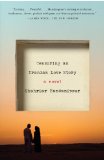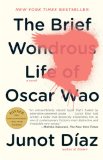Summary | Excerpt | Reviews | Beyond the book | Read-Alikes | Genres & Themes | Author Bio

A Novel
by Miguel SyjucoReading Ilustrado is like gazing through a kaleidoscope. The story zooms in on an unreliable narrator, Miguel Syjuco, shifts toward a mysterious figure who refers to him as "Our protagonist," then shifts again — all while being spliced with an ongoing, one-man investigation into the circumstances of Salvador's death, as well as scenes of unrest in the Philippines. The text is further enriched by snippets from blogs; interviews; excerpts from stories, novels, and a memoir by Crispin Salavador; portions of Miguel's biography-in-progress; a running joke about a Filipino student; recollections of Miguel's former romantic relationship; references to the Japanese occupation of the Philippines during the Second World War; and a glimpse at the literati, among other topics.
Such an ambitious whirlwind could dissuade some readers, but far more intriguing than the book's structure is the mentor/mentee relationship that informs Miguel's life. His search is not only a quest for justice; it is also an extended meditation on the nature of obsession. The major turn (which reveals that the work is in fact metafiction, and that all is not as it seems) is critical for understanding everything that preceded this particular moment. Without revealing the details, some of the important questions raised include how a talented individual could invent what never happened or rearrange what has happened to suit his own needs; how the rumination over a brief encounter has inspired the creation of a novel; why certain figures are lambasted or lionized; and what makes some stories seemingly worthier of appropriation. One character leads the reader to wonder why another has taken a stronghold in his imagination, remarking, "To make sense of what was happening to me, I obsessed on what had happened to him." Whether or not this character's journey toward self-inquiry borders on narcissism, his truth-bending proves frequently humorous and disturbing.
Syjuco's debut is occasionally lavish, including scenes of nightlife as well as a subplot that involves pop star Vita Nova's reputed tryst with the president. At other times the novel turns toward more familial material; Miguel and Salvador have both chosen to exile themselves from the rarefied echelons of society to pursue literary lives, and both hold secrets they must reconcile with in their respective ways. The climax occurs during a flood, when Miguel must decide to either wait and be rescued, or risk himself to save others. The scene encapsulates some of the novel's finer points, such as the frank portrayal of a narrator whose self-awareness is a hindrance as well as a saving grace. It may strike some readers as too-dramatic, however, but it is entirely in keeping with other scenes in the novel that share a similarly hyperbolic sensibility.
For all its wide-ranging splendors, Ilustrado is largely a piercing examination of identities in transition. As the author has noted in an interview with TIME magazine, he wanted Miguel "to represent my own fears and frustrations and guilt, my own worst tendencies and my optimistic expectations. He's a cautionary tale for me. But he's also an examination of the darkest things that haunt me as a person" — an insight that offers some perspective as to how the main character should be read. Miguel's single-minded pursuit has marked this debut as more than a current event in publishing. It has fully earned its praises through the psychological mapping of a man who must live through the fallen grandeur of a place that is as prismatic as Salvador's writings, and in the end, that is as dynamic, frightening, and engaging as the course of his own life.
Useful to Know...
The author's last name is pronounced see-hoo-coh.
Karen describes Ilustrado as a work of metafiction featuring an unreliable narator - for a brief explanation of both these terms see the backstory to The Long Song.
Ilustrado, which translates from Spanish as "enlightened," is a term first used to describe the elite of late 19th century colonial Philippines, who were sent to Europe to be educated. These expatriates returned to their homeland and helped oust their Spanish colonial masters in 1896.
![]() This review was originally published in The BookBrowse Review in June 2010, and has been updated for the
June 2011 edition.
Click here to go to this issue.
This review was originally published in The BookBrowse Review in June 2010, and has been updated for the
June 2011 edition.
Click here to go to this issue.

If you liked Ilustrado, try these:

Censoring an Iranian Love Story
by Shahriar Mandanipour
Published 2010
From one of Iran’s most acclaimed and controversial contemporary writers, his first novel to appear in English—a dazzlingly inventive work of fiction that opens a revelatory window onto what it’s like to live, to love, and to be an artist in today’s Iran.

The Brief Wondrous Life of Oscar Wao
by Junot Diaz
Published 2008
Things have never been easy for Oscar, a sweet but disastrously overweight, lovesick Dominican ghetto nerd. Oscar dreams of becoming the Dominican J. R. R. Tolkien and, most of all, of finding love. But he may never get what he wants, thanks to the Fukœ - the curse that has haunted Oscar's family for generations.
Your guide toexceptional books
BookBrowse seeks out and recommends the best in contemporary fiction and nonfiction—books that not only engage and entertain but also deepen our understanding of ourselves and the world around us.